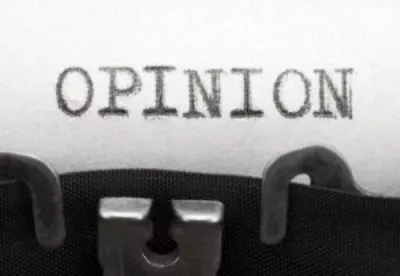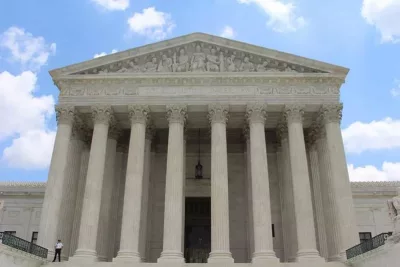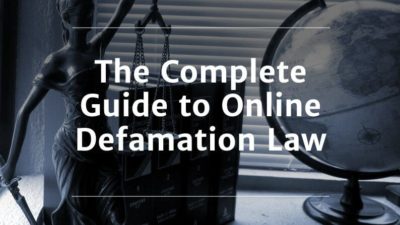
Homeowners & Renters Insurance Coverage in Defamation Lawsuits
This page has been peer-reviewed, fact-checked, and edited by qualified attorneys to ensure substantive accuracy and coverage.
The Basics: Insurance Coverage For Defamation Lawsuits
On a week-to-week basis, I talk to a lot of individuals and businesses who are unhappy about online content or information that is posted on the Internet and want it removed. Most times during these conversations, the topic about whether a lawsuit should be filed comes up.
Although there’s a plethora of different factors that should be considered when deciding whether to file defamation lawsuits, there’s one particular factor that I find is often overlooked – whether defamation insurance is necessary for defendants and how it can affect the claims asserted against them.
Needless to say, if a defendant has an insurance policy which covers defamation and other torts, this can be an absolute game changer for bringing a libel or slander lawsuit.
Defamation Law Fact: The tort of defamation can be broken down into two fundamental categories; libel and slander. Libel refers to a false written statement made to a third-party, ultimately damaging another’s reputation, while slander refers to a false spoken statement. Persons who communicate and publish defamatory statements are typically referred to as defamers, libelers, slanderers, and famacide.
So, How Exactly Does Defamation Insurance Affect Plaintiffs?
For plaintiffs, finding out your opponent – the defendant – has insurance coverage can be a mixed bag.
On one hand, insurance coverage can be great for plaintiffs, as it can make an otherwise uncollectable defendant collectable, allowing you to actually recover damages for the injury or harm suffered.
On the other hand, a defendant with defamation insurance and coverage also means that a defendant will have the legal expenses associated with defending the lawsuit paid for – which they might not previously have had the resources to afford.
Ultimately, this can mean the lawsuit is a longer, drawn out process, and more expensive, causing a slower settlement timeframe.
Defamation Defenses Fact: Some of the most common defenses used by defendants in defamation actions are: (1) Truth – after all, if the statement is true, there is no false assertion of fact, (2) Opinion – beware of statements that combine opinion with false facts, these are actionable, (3) Consent – a plaintiff can’t bring a defamation action if they consented to its publication, (4) Privilege – the legal right of the defendant to communicate such statement, and (5) Fair comment – persons commenting on a matter of public interest in an unbiased manner and without ill will are protected.
Defamation insurance is a complex topic that shouldn’t be approached without the help of an experienced defamation attorney. The internet defamation lawyers of Minc Law are here to help explain whether defamation insurance is right for you, or how a defendant’s defamation insurance coverage may affect your claim. Reach out today to discuss your legal options when pursuing a defamation claim.
The Minc Law team of nationally recognized defamation attorneys have litigated defamation claims in over 19 states and 3 countries, and have secured hundreds of takedowns and removals – all for a flat, reasonable fee.
At Minc Law, we boast a nearly 100% defamation removal rate, and know who to work with in order to secure swift and permanent defamation removals.
So, if you have a question about defamation insurance, or have been the victim of online defamation, call us today at (216) 373-7706 or schedule a meeting by filling out our online contact form.
Let us help. Contact us for a free consultation with an intake specialist to help you explore your removal options and craft an effective strategy.Are you the target of defamation?
Homeowners & Renters Insurance Covering Defamation Lawsuits?
One area that is typically overlooked as a potential source of coverage is homeowners and renters insurance policies. After all, many homeowners and renters insurance policies cover damages and legal fees incurred for lawsuits against an insured individual for “bodily injury” and/or “personal injury.”
Although we typically think of bodily injury as something arising out of an accident that causes physical harm or injury to a person’s body, “bodily injury” is often defined or interpreted as including coverage for injuries arising out of defamation or invasion of privacy. Think about it, some of the most common effects of online defamation or slander are:
- Mental anguish,
- Anxiety,
- Depression, &
- Other physical symptoms.
An umbrella liability to a homeowners policy may also provide additional monetary coverage. However, this obviously only applies if an insurance contract has already specified that coverage already exists for these types of claims.
Defamation Law Tip: In the Wild Wild West of defamation law, the United States is typically considered a pro-defendant jurisdiction for defamation claims due to its enforcement of the First Amendment, while European and other Commonwealth countries are typically considered pro-plaintiff jurisdictions. If you are located within a pro-plaintiff jurisdiction or engaged in a high-risk profession for defamation lawsuits, then we highly recommend you look further into a defamation policy.
Besides homeowners and renters insurance coverage, defamation claims can also be covered under “excess liability” coverage – a policy which extends beyond the traditional limits of a primary liability insurance policy.
Think of excess liability coverage as a safety net for your insurance, which catches anything your primary policy fails to cover.
Limitations & Exclusions to Insurance Coverage for Defamation Actions
Even if defamation coverage is found to exist in a policy, there are several common exclusions and limitations to the coverage.
For example:
- Intellectual property: Most insurance policies don’t cover against copyright or intellectual property claims or lawsuits;
- Business pursuits: Homeowners and renters policies often contain exclusions which deny coverage for claims arising out of “business pursuits” – a definition which varies widely from state-to-state (for example, blogs that even earn nominal advertising income can qualify as a business pursuit);
- Malice: Claims may also be excluded if a statement or publication is made intentionally with actual malice and knowledge by the speaker that it was false (it does however typically cover negligence, unless gross or wanton).
Additionally, while homeowners and renters insurance policies will generally cover the legal costs associated with defending a defamation lawsuit (i.e. expert and attorney’s fees) and any awards of compensatory damages awarded to the plaintiff for injury – punitive damages (punishment damages) are typically not covered.
Ohio Defamation Insurance Tip: It’s important to understand that every insurance policy is different, and there’s no guarantee your insurance company or policy offers extended coverage for defamation. If you’re an Ohio resident and searching for a policy that covers defamation and other torts, check out the Ohio Department of Insurance for a comprehensive list of agents, companies, and policies.
Note that oftentimes, defamation insurance and excess coverage will only extend to parties who acted in good faith or unknowingly when publishing or communicating a defamatory statement. And, in cases concerning businesses, defamatory statements made about a competing company or contractor will often preclude a business from relying on defamation coverage.
What to Look For When Purchasing Specialized Defamation Insurance
If you do decide to purchase specialized defamation insurance, here are several points of coverage you should seek coverage for:
- Media charges: Parties purchasing defamation insurance should make sure the policy covers claims related to publishing and newsgathering – not only should these policies include libel and defamation, they should also cover other torts, such as invasion of privacy and errors and omissions. Additionally, such policy should seek to include intellectual property infringement claims within them.
- Defense costs: Defamation suits can cost a pretty penny, so make sure to include the litigation and defense costs. There’s no point going bankrupt shelling out large sums of money to defend yourself, especially if faced with a frivolous lawsuit.
- Occurrence policies: Occurrence policy coverage protect parties from incidents or events covered during the specific policy period, which is important if your confronted with a defamation suit several years after the incident happened.
- Global coverage: If you interact with a particularly international audience, it’s worth considering global coverage, in order to cover charges filed outside of the United states.
And, if you’re wondering where exactly the money your paying goes when purchasing defamation insurance – it goes towards your lawyer’s evidence gathering and preparation to further your possible defenses.
If you’re a party considering whether to bring a libel or slander suit against a person or business, it’s highly recommended you reach out to an experienced defamation and Internet attorney to help you explore all options.
Which Parties Are at Highest Risk of a Defamation Lawsuit?
When evaluating whether defamation insurance is right for you or your business, it’s important to take a step back to see whether you, your profession, or business frequently engage in high-risk behavior, such as:
- Publication,
- Advertising,
- Promotional activities, &
- Discussion of contentious & hot topics of public concern.
Typically, journalists, independent contractors, news and media organizations, and freelancers are at the highest risk of defamation claims. However, only if such profession typically engages in hot topic or contentious issues. After all, if you are a journalist who is writing investment tips, you likely don’t need to be purchasing defamation insurance.
However, if you’re a journalist who is constantly critiquing and criticizing public figures, there’s a higher likelihood of being sued for defamation.
The Case of Ali Yashar
In August, 2017, Huffington Post contributor and journalist Ali Yashar was sued by a Fox News host for over $50 million in damages after Yashar accused news host Eric Bolling of sexting three coworkers.
Yashar’s attorney stated the lawsuit was “a calculated effort to harass and intimidate” Yashar, and luckily, the Huffington Post Editor-in-Chief offered to cover all of Yashar’s legal expenses.
It’s important to recognize that Yashar was in a very fortunate position, as most freelancers and journalists are not backed by a supporting organization, and are likely going to have to pay damages themselves if they lose.
Online Reputation & Brand Management Tip: In order to monitor you or your business’s online reputation, we highly recommend you set aside a portion of your marketing budget to monitor how your business is perceived online and identify any persons who are infringing your intellectual property rights. Doing so will help you minimize the spread of libel and online defamation and allow you to stay in charge of your reputation.
Work With Insurance Coverage Dispute Defamation Attorneys Today!
Defamation insurance claims can be complex and overwhelming and sometimes it’s not always particularly easy to figure out whether a particular claim for defamation is covered under homeowners or renters insurance. Additionally, the laws of each state often differ significantly in their interpretation of specific policies, therefore, it’s important to closely examine a policy’s definition and endorsements.
If you’re being sued for defamation or are considering filing a defamation lawsuit, reach out to the internet defamation attorneys of Minc Law to discuss your legal options and familiarize yourself with the implications of defamation insurance. At Minc Law, we have extensive experience both prosecuting and defending claims for insurance coverage and handling insurance coverage disputes, so know that you’re in good hands.
Here’s what you can expect when working with Minc Law:
- Respect & Courtesy: Defamation law is a highly nuanced area of law, therefore we are here to explain every aspect of your case in great detail and with compassion. At Minc Law, we pride ourselves on a balance of aggressive representation and compassion. After all, your goals are our goals.
- Open Dialogue & Communication: Some attorneys seem to go missing after they’ve commenced with your takedown process. Know that when working with our team team, we will stay in constant contact with you regarding the details and updates of your removal.
- We Get Results: At Minc Law, we’ve litigated in over 19 states and 3 countries, and boast a nearly 100% online defamation removal rate. We know who to work with and how to work with them. Websites and businesses respond to Minc Law.
Reach out to us today to get started with your free, initial no-obligation consultation with an intake specialist by calling us at (216) 373-7706, or by scheduling a meeting by filling out our online contact form.
The Defamation Attorneys of Minc Law are here to fight for you.
★★★★★
“The Minc firm handled my case very quickly, efficiently and thoroughly. I am very pleased with the level of professionalism and quality of work that they provided.”
Anonymous, October 7, 2019



